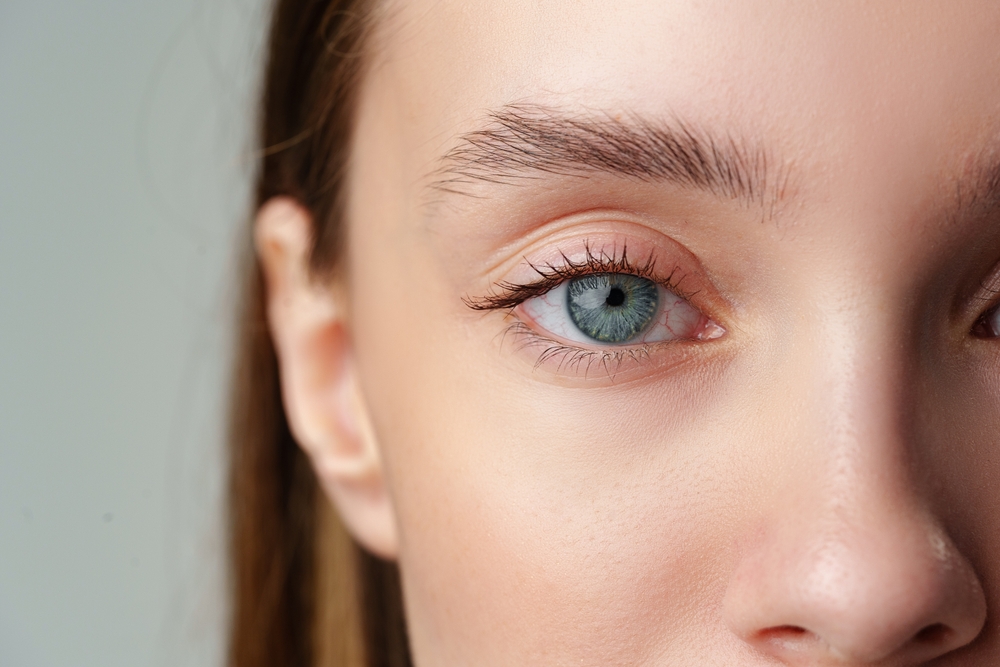
Orthokeratology, or Ortho-K, is a non-surgical method for vision correction that involves wearing specially designed contact lenses overnight to reshape the cornea. This allows for clear vision throughout the day without the need for glasses or daytime contacts. While Ortho-K offers many benefits, it’s not suitable for everyone. Certain eye conditions, lifestyle factors, or health issues may make Ortho-K less effective or even problematic. Here are the top five reasons you might want to think twice before opting for Ortho-K.
1. If You Have Very Sensitive Eyes
If you are very sensitive with anything around your eyes, Ortho-k treatment might be tough for you! Ortho-k utilizes small, rigid, gas-permeable lenses that are worn while you sleep. If you have difficulty putting in eye drops, or could never put contacts on your eyes, then Ortho-k may not be the best option for you
Ortho-k uses small, rigid, gas-permeable lenses: These lenses need placed on the eye before you sleep
Need to be worn every night: You have to wear them every night to get the best possible vision with Ortho-k
2. If You Have Corneal Diseases Such as Keratoconus
Ortho-K is not recommended for individuals with corneal diseases like Keratoconus, where the cornea becomes progressively thinner and more cone-shaped.
Increased risk of complications: In people with keratoconus, the cornea is already structurally weakened, and applying pressure with Ortho-K lenses could worsen the condition or lead to other complications.
Alternative treatments may be better: For those with keratoconus or other corneal disorders, treatments like scleral lenses or corneal cross-linking may be more effective and safer options.
3. If You Have Severe Dry Eye
Severe dry eye syndrome can make wearing Ortho-K lenses uncomfortable and less effective. Ortho-k can be an option for patients that suffer from dry eye due to contact lens wear, as it will eliminate the need for day time contact lenses. However in the cases of SEVERE Dry eye where the patient can produce little to no tears, this can cause problems with Ortho-k treatment. Ortho-k utilized the tear film to gently mold the cornea, so if little to no tears are available, the treatment may not be as effective. Your eye doctor will be able to tell at the initial evaluation if you have enough tear film for Ortho-k.
Not effective treatment: Ortho-K uses the tear film to gently reshape the eye, so little to no tear film would make treatment less than ideal
Increased risk of damage: People with SEVERE dry eye are more prone to corneal abrasions or damage from lens wear, as the eyes lack sufficient lubrication to allow the lenses to move smoothly on the surface.
4. If You Have Cataracts
Ortho-K is designed to correct vision issues related to the cornea, but cataracts affect the eye’s lens, which is deeper inside the eye.
Limited effectiveness: Since cataracts cause the eye’s natural lens to become cloudy, Ortho-K lenses won’t address the vision problems caused by cataracts. Surgery may be required to remove the cataracts and restore clear vision.
Not a viable option for cataract patients: If you have been diagnosed with cataracts, Ortho-K won’t improve your vision and may not be worth the investment.
5. If You Have Poor Sleeping Habits
Ortho-K lenses work by reshaping the cornea overnight, so they need to be worn consistently for at least 6-8 hours each night. If you have poor sleeping habits—whether it’s insomnia, irregular sleep schedules, or difficulty getting enough sleep—Ortho-K may not provide the desired results.
Inconsistent results: If you don’t sleep for long enough, or if your sleep is frequently interrupted, the lenses may not have sufficient time to reshape the cornea, leading to blurred or inconsistent vision during the day.
Unreliable for night-shift workers or insomniacs: If you work night shifts or have irregular sleep patterns, Ortho-K may not be a practical or reliable solution for vision correction.
Conclusion
While Orthokeratology can be an excellent choice for vision correction in many cases, it’s not suitable for everyone. Individuals with sensitive eyes, corneal diseases like Keratoconus, SEVERE dry eye, cataracts, or poor sleeping habits may face complications or limited benefits from Ortho-K. It's essential to consult with an eye care professional to assess whether Ortho-K is the right option based on your eye health and lifestyle.
If any of these issues apply to you, other vision correction methods—like LASIK, PRK, or specialized contact lenses—may be a better fit. Your Optometrist can help guide you to the safest and most effective solution for your vision needs.








